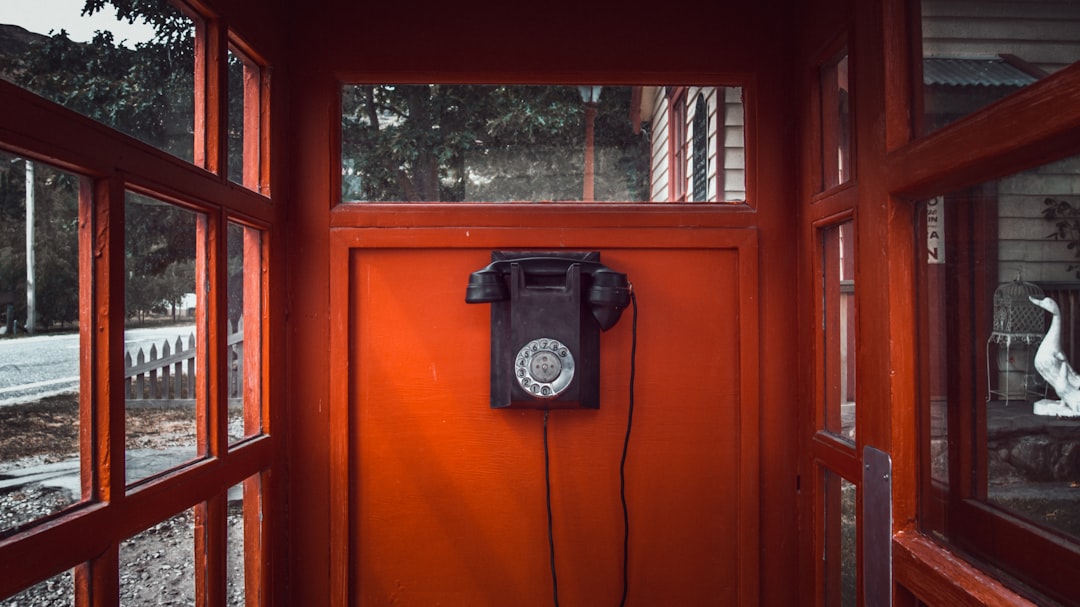Robocalls, though legally restricted in Kentucky via TCPA and state laws, remain a nuisance. Residents use specialized apps like TrueCall and Hiya to block unwanted calls, with help from robocall attorney services. These apps, combined with reporting suspected robocalls and Attorney General's Office resources, aim to create a peaceful phone environment, protecting vulnerable populations from stress and privacy invasion.
In the age of digital connectivity, Kentucky residents face a growing nuisance: robocalls. These automated, unsolicited phone calls not only disrupt daily life but also pose privacy risks. Understanding the extent of this issue and navigating the legal frameworks designed to protect Kentuckians is crucial. This article explores how state laws empower citizens against robocalls and introduces top apps developed to block these unwanted intrusions. Learn how to choose and implement an effective solution, empowering you with control over your phone line and peace of mind, courtesy of a Kentucky robocall attorney’s insights.
Understanding Robocalls and Their Impact in Kentucky

Robocalls have become a ubiquitous, yet often irritating, aspect of modern life in Kentucky, as they are across the nation. These automated telephone calls, often from unknown numbers, can carry advertising messages, legal notices, or even fraudulent schemes. While some robocalls may be legitimate, such as those from local businesses or government agencies, many Kentuckians find themselves on the receiving end of unwanted and intrusive phone calls.
The impact of robocalls extends beyond mere frustration. They can disrupt daily routines, invade personal privacy, and even contribute to increased stress levels. For vulnerable populations, including the elderly or those with limited access to information, these calls can be particularly harmful. Legal protections against robocalls exist, but navigating these regulations as a consumer can be challenging. Kentucky residents often turn to various methods, including specialized apps, to block these unwanted calls and reclaim their peace of mind.
Legal Frameworks: How Kentucky Protects Its Residents

In Kentucky, the protection against robocalls is primarily governed by federal and state laws designed to curb unsolicited telephone marketing practices. The Telephone Consumer Protection Act (TCPA) at the federal level restricts the use of automated dialing systems and prerecorded messages for telemarketing purposes without prior express consent from the recipient. Kentucky has also implemented its own legislation, such as requiring robocallers to identify themselves and provide an opt-out option, further empowering residents to manage their phone calls.
Kentucky residents can take advantage of these legal frameworks by reporting suspected robocalls to state authorities and utilizing consumer protection resources provided by the Attorney General’s Office. These measures collectively aim to ensure that Kentucky citizens are protected from unwanted and harassing robocalls, promoting a peaceful and less disruptive telephone environment.
Top Apps to Block Robocalls Effectively

In today’s digital era, robocalls have become a ubiquitous and often annoying part of daily life. Luckily, several apps are designed to combat this growing issue effectively. One such app that stands out is TrueCall, which uses advanced algorithms to identify and block not just robocalls but all unwanted calls, including those from telemarketers and scam artists. Another popular choice is Hiya, known for its robust database of known robocall numbers and its ability to learn and adapt to new patterns.
For residents of Kentucky seeking protection against robocalls, these apps offer a reliable solution. A robocall attorney in Kentucky might recommend these tools as part of a comprehensive strategy to mitigate the nuisance and protect consumers from deceptive practices. By combining cutting-edge technology with legal expertise, Kentuckians can reclaim their phone lines and enjoy more peaceful interactions, free from the hassle of unwanted calls.
Implementing and Utilizing Your Chosen App

Implementing and utilizing your chosen app to block robocalls is a straightforward process. Once downloaded, the app typically offers an intuitive interface where you can easily manage settings and create custom rules. Start by allowing access to your call history and contacts. Many apps use this data to learn and adapt their blocking patterns over time. Next, configure your preferences; select specific types of calls you want to block, such as unknown numbers or those containing certain keywords like “legal” or “attorney.” Some advanced apps even let you set up personalized messages to screen incoming calls automatically.
Regularly reviewing and updating these settings is crucial to ensure optimal protection against evolving robocall tactics. Many applications provide analytics or reports on blocked calls, offering insights into the types of unwanted calls targeting Kentucky residents. By staying proactive and fine-tuning your app’s settings, you can significantly reduce the volume of robocalls reaching your phone, providing a quieter and safer communication environment.






